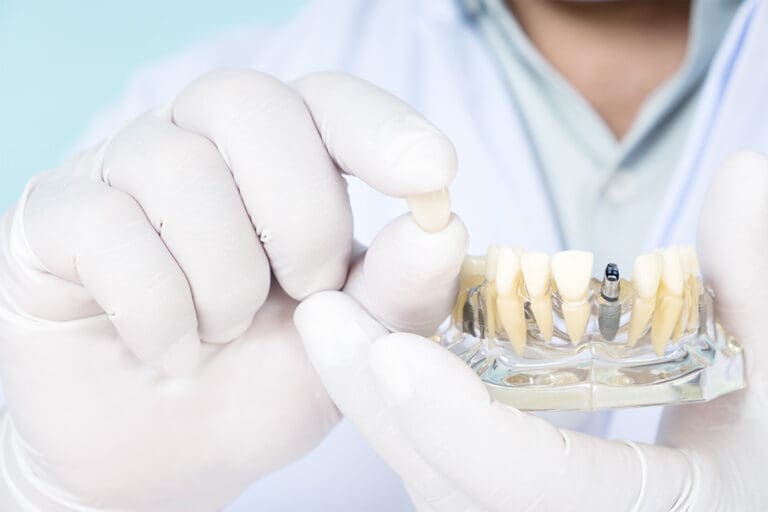Thumb-sucking and pacifier use are common behaviors that provide comfort and security for young children. However, prolonged dependence on these habits can result in dental issues such as misaligned teeth or improper jaw development. As a parent, it is essential to recognize when these behaviors should be addressed and understand the most effective strategies to help your child transition away from them. At Waban Dental Group – Pediatric Dentistry & Orthodontic, our pediatric dentists are experienced in guiding families through the process of breaking thumb-sucking and pacifier habits, ensuring both the well-being of your child and their oral health.
In this article, we will discuss the potential dental repercussions of prolonged thumb-sucking and pacifier use, as well as methods parents can employ to help their child overcome these habits. Additionally, we will provide insight into the role pediatric dentists play in supporting this transition and maintaining your child’s overall dental health.
By understanding the potential dental implications of thumb-sucking and pacifier use and employing expert strategies to help your child move past these habits, you can contribute to their oral health and well-being. The caring pediatric dentists at Waban Dental Group – Pediatric Dentistry & Orthodontic are here to provide guidance and support for parents as they navigate this important developmental milestone with their child.
Helping Your Child Break Thumb-Sucking and Pacifier Habits
Dental Implications of Prolonged Thumb-Sucking and Pacifier Use
While thumb-sucking and pacifier use are natural soothing habits for young children, they can lead to dental issues if allowed to continue beyond a certain age. Some potential dental complications include:
1. Misaligned Teeth: Prolonged thumb-sucking or pacifier use can put pressure on the upper and lower front teeth, causing them to protrude or become misaligned.
2. Open Bite: Continual sucking can lead to an open bite, where the upper and lower teeth do not meet when the jaws are closed, affecting one’s ability to bite and chew properly.
3. Speech and Swallowing Difficulties: Extended thumb-sucking or pacifier use may contribute to difficulties in proper speech development, articulation, and swallowing.
4. Altered Jaw Development: The pressure exerted by these habits on a child’s jaws can lead to changes in their natural development and growth.
Identifying the most appropriate time to address these habits is crucial for promoting your child’s dental health.
Methods to Help Your Child Overcome Thumb-Sucking and Pacifier Habits
Breaking habits such as thumb-sucking and pacifier use calls for patience and support from parents. Here are some effective methods to help your child transition away from these habits:
1. Positive Reinforcement: Offer praise, rewards, or incentives for your child when they successfully abstain from thumb-sucking or pacifier use for a certain period. Encouraging their progress can provide a sense of accomplishment and reinforce their efforts.
2. Replace the Habit: Introduce alternative sources of comfort, such as a soft toy or blanket, to help your child feel secure and less reliant on their thumb or pacifier.
3. Create Awareness: Sometimes, children suck their thumb or use a pacifier without realizing it. Gently remind them when you notice the habit, helping them become more conscious of their actions.
4. Set Gradual Goals: Encourage your child to reduce the frequency and duration of thumb-sucking or pacifier use gradually, enabling them to adapt more easily to the change.
Collaborate with your pediatric dentist to develop a tailored plan to address your child’s specific needs.
Support from Pediatric Dentists: Understanding the Professional Role
Pediatric dentists play a vital role in helping families break thumb-sucking and pacifier habits while ensuring the child’s dental health:
1. Assessing Oral Health: A pediatric dentist will evaluate your child’s teeth and jaw development, identifying any potential issues caused by thumb-sucking or pacifier use and recommending appropriate treatment.
2. Determining the Right Time: Pediatric dentists can provide guidance on the most suitable time to address thumb-sucking or pacifier behavior, considering factors such as age and emotional readiness.
3. Offering Expert Suggestions: Based on your child’s unique needs and circumstances, a pediatric dentist can recommend specific strategies and tools to facilitate the transition away from these habits.
4. Monitoring Progress: Maintain regular dental checkups with your pediatric dentist to assess your child’s oral health and monitor their progress in breaking these habits.
Working closely with a pediatric dentist ensures your child receives the necessary support and guidance in overcoming thumb-sucking or pacifier habits.
Fostering Your Child’s Oral Health and Emotional Well-Being
Helping your child let go of thumb-sucking or pacifier habits is a crucial milestone in their development. By understanding the potential dental consequences, employing effective strategies, and collaborating with pediatric dentists, you can compassionately guide your child to overcome these habits while safeguarding their oral health.
At Waban Dental Group – Pediatric Dentistry & Orthodontic, our pediatric dentists are committed to supporting families through this important phase and ensuring your child receives the highest level of dental care. Schedule an appointment with our compassionate dental professionals to discuss strategies for breaking thumb-sucking or pacifier habits and address any other concerns you may have about your child’s oral health. Together, let’s foster well-rounded development and build a strong foundation for a lifetime of healthy smiles.







